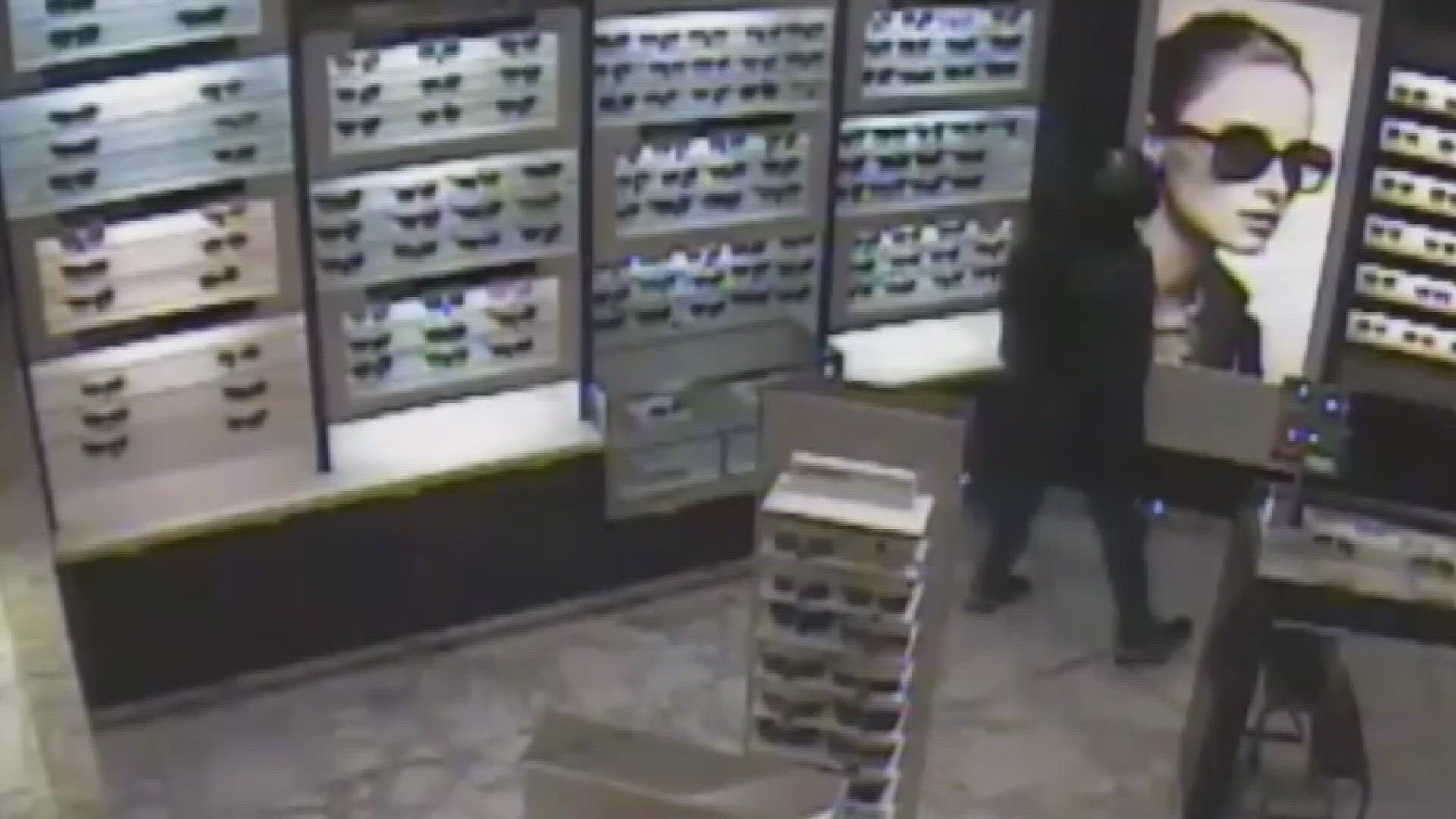FAIRFAX, Va. — The former Fairfax County police officer on trial for involuntary manslaughter took the stand Tuesday.
In February 2023, then-Sgt. Wesley Shifflett shot and killed 37-year-old Timothy Johnson during a chase from Tysons Corner Center. His body camera captured him firing his gun twice, one bullet striking Johnson in the chest in the wooded area outside the mall.
On the stand, Shifflett said he had no other option but to use his gun because he perceived 37-year-old Timothy Johnson to be a deadly threat. Shifflett also felt there was no time to warn him before firing his gun twice.
Shifflett chased after Johnson for allegedly stealing pairs of sunglasses from the Nordstrom at Tysons Corner Center. He said plain-clothed officers with the Tysons Urban Team were following him, but typically, officers in uniform would make an arrest.
The chase, captured on body-worn camera, would snake its way out of the mall, through a parking garage and into a wooded area near Fashion Boulevard. You could hear Shifflett yelling for Johnson to stop and get on the ground several times.
Once they reached the wooded area, the defense said Johnson tripped but got up on his knees.
Shifflett demonstrated to the jury how he could see Johnson use his left arm to cross his body and “clear his baggy clothing” to make space for his right arm as it made a back-and-forth motion in his waistband.
Based on his training, Shifflett thought Johnson was about to pull out a gun since the waistband is the most common area to hide a weapon.
“At that moment, that was the most scared I've been in my entire life,” Shifflett testified. “Initially it was just shock when somebody would take what I perceived was an aggressive position on his knees. To be in an upright position facing me, it felt confrontational.”
Shifflett also claimed how Johnson “locked on” to him with his eyes as he was being “acquired as a target.”
Prosecutors have argued that Shifflett recklessly discharged his gun near a busy mall. Johnson’s loved ones maintained his actions were excessive for a shoplifting case.
Johnson’s family has been in the courtroom since the start of trial. His mother Melissa Johnson stepped outside the courtroom for a period time when Shifflett first took the stand.
Master Police Officer Gene Bork said Shifflett’s actions that night were consistent with the trainings he provides at the academy, even after knowing the crime was a misdemeanor case. Bork described how someone reaching for their waistband isn’t always considered an imminent treat, but added the refusal to follow commands and a turning motion could be perceived as an “aggressive resistor,” which means an increased risk of injury towards an officer. Lethal force might be necessary, he said.
Bork said there is no training that a firearm must be visible before using deadly force because it would take longer for an officer to pull out their gun.
After reviewing the same bodycam video, Bork described how the resistance levels by Johnson increased when he ran towards the wooded area.
Since Johnson was shot in the chest, the prosecutor asked Bork, “Are they [officers] trained to shoot center mass as opposed to your arm or leg?”
“If an individual is facing you, the greatest area to stop the threat would be the chest,” Bork replied.
Det. Jon Long also took the stand to go over his time interviewing Shifflett and visiting the scene weeks later.
Pointing to enhanced bodycam footage, Long said the same white patches reflected from Johnson’s jacket and jeans in the wooded area matched what he was wearing in the mall.
Long claimed there was ambient lighting in the woods from the mall and a side building.
“Being in the woods with my own eyes, the lighting looked better or clearer than what you see on the body-worn camera,” Long testified.
Det. Susan Anderton said some of the items she collected from the scene include synthetic marijuana found in Johnson’s jacket and strips of suboxone, a prescribed synthetic opioid used to help treat opioid misuse.
Police also found two pairs of high-end sunglasses including one inside Johnson’s jacket pocket with a security tag still attached.
Judge Randy Bellows also granted the defense the ability to illicit answers from a civilian crime analyst for FCPD about Johnson’s prior charge in 2003. He was initially charged with attempted first-degree murder on law enforcement but faced assault instead.
In another win for the defense, Bellows approved how attorneys could bring up Johnson’s probation but couldn’t divulge how it’s stemmed from a manslaughter case. Attorney Jenna Sands argued that it’s technically a supervised release.
The defense attorney argued this piece of information speaks as to why Johnson appeared to turn to his side to pull something, presumably the drugs found on him.
Closing arguments are expected to happen on Wednesday.

